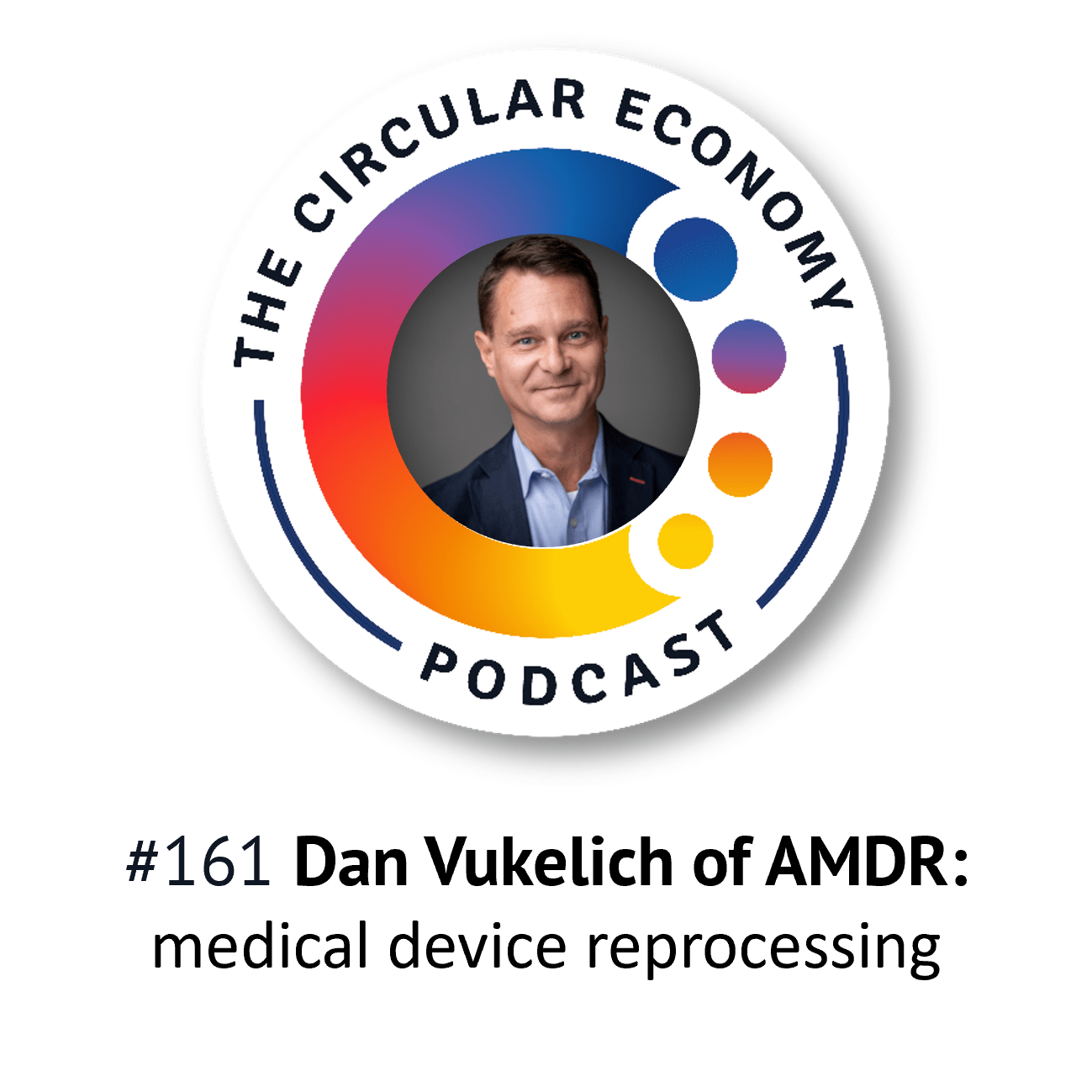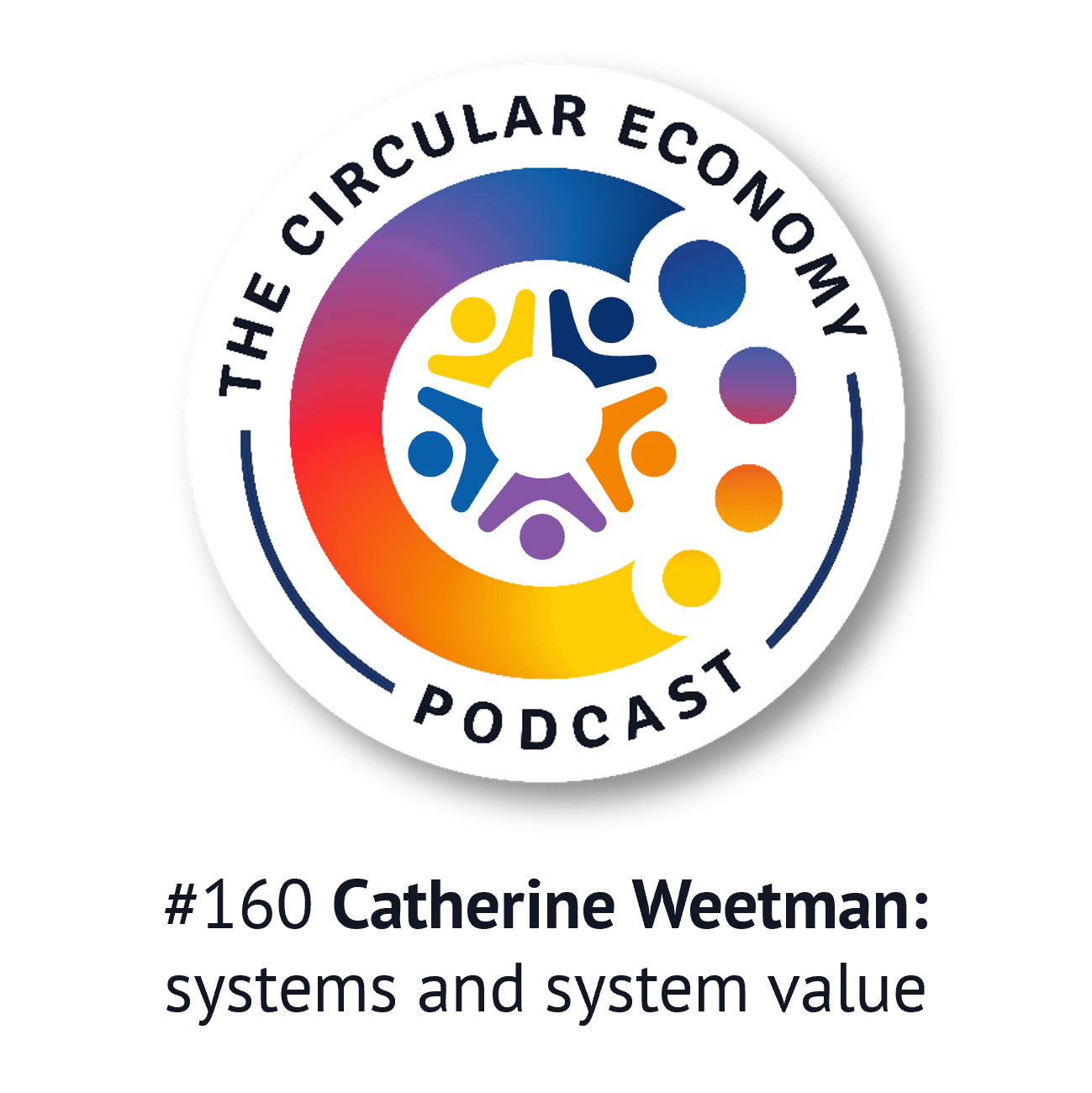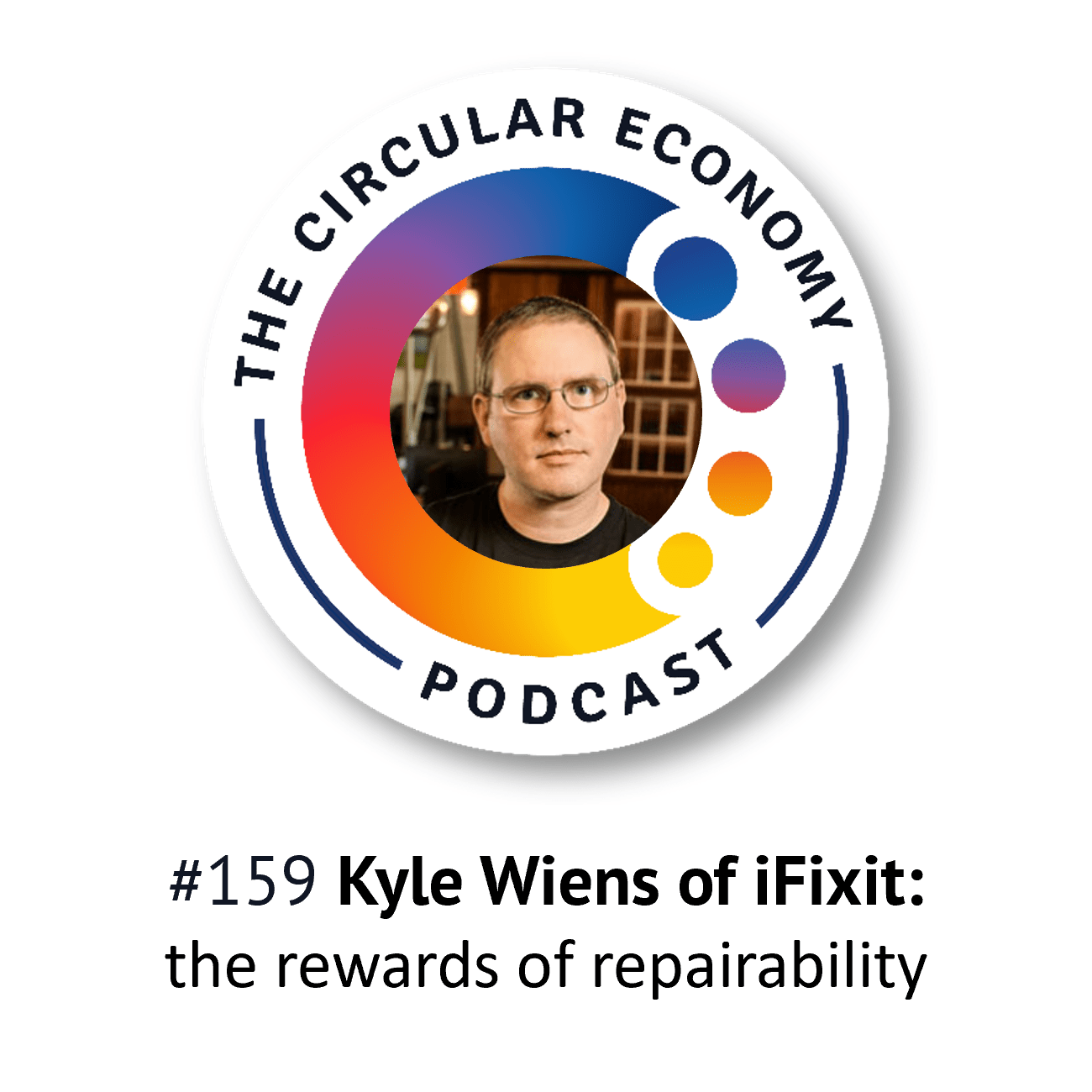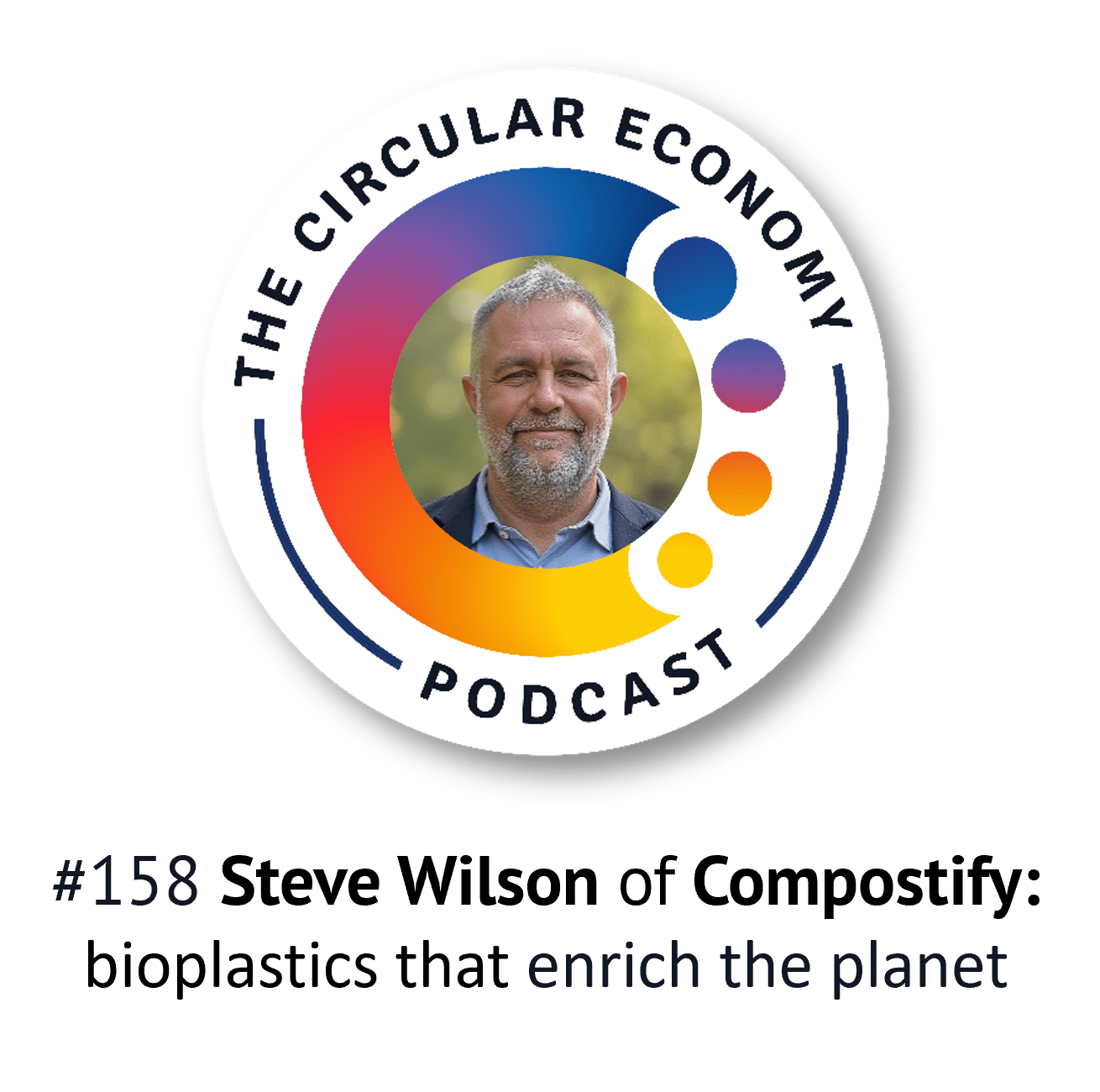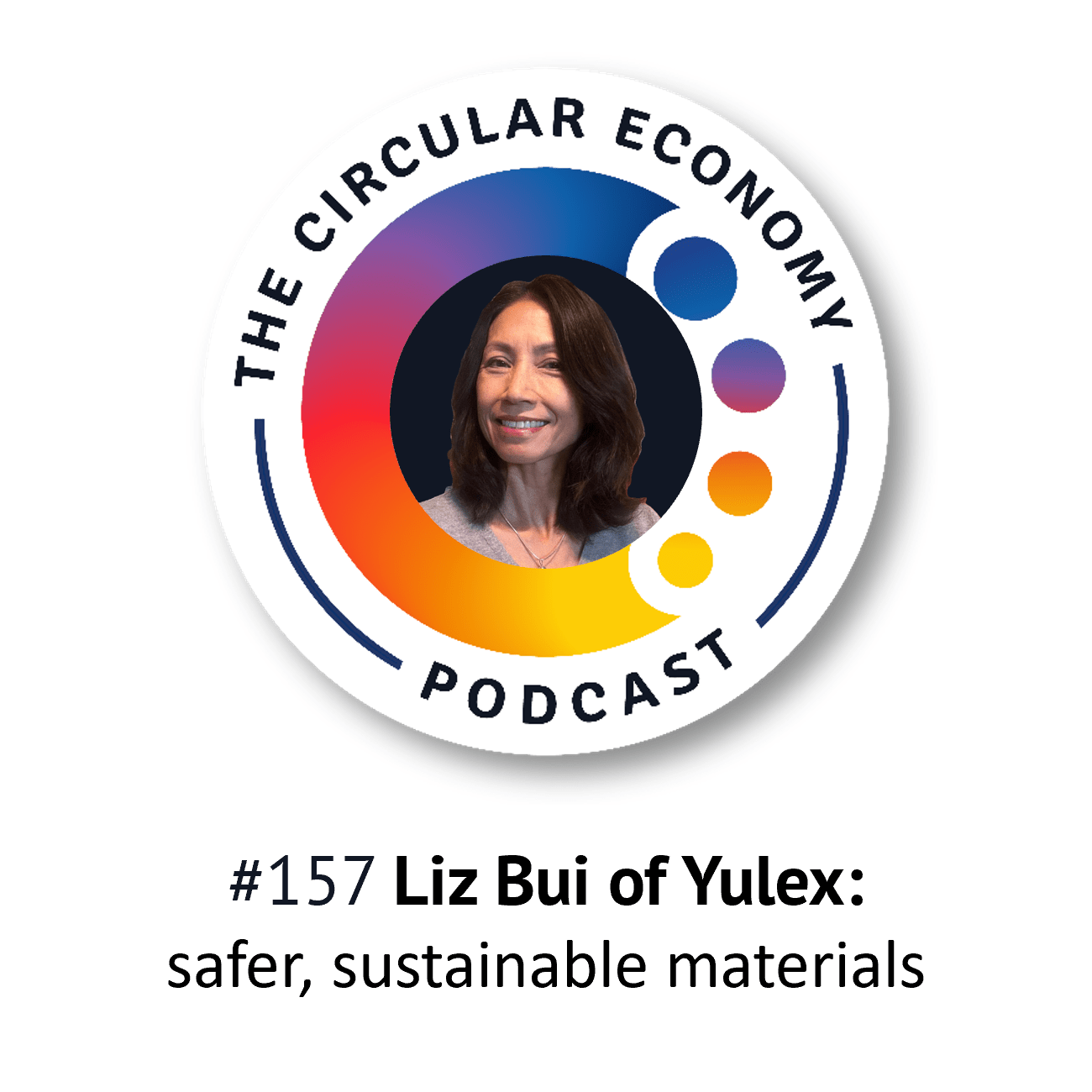Podcast: Play in new window | Download
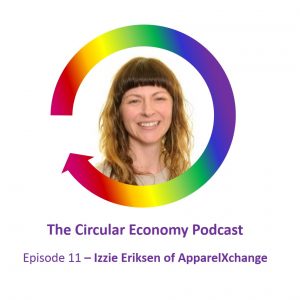 School uniform that doesn’t cost the earth…
School uniform that doesn’t cost the earth…
We’re talking to Izzie Eriksen, the founder and driving force behind ApparelXchange, a Scottish social enterprise aiming to make it easy to reuse school uniforms, instead of wasting them.
ApparelXchange works with schools across Glasgow (age groups 7-18) to gather uniforms, and process them so they can be reused. There is an online shop, a store in Glasgow plus pop-up shops in schools.
How does it work? People donate uniforms at the shops or at collection points in schools. Next, everything is sorted and quality checked, and anything below the quality standard goes to a registered textile recycler. Finally, clothes in excellent reusable condition are washed, ironed and then made available for re-sale.
We discuss how to make reuse and pre-loved clothing cool, how to persuade people to opt-out of fast fashion, and some of the subscription models popping up for clothing.
You can find ApparelXchange on the web https://www.apparelxchange.co.uk/ and on Facebook https://www.facebook.com/apparelxchangeCIC/
Podcast host Catherine Weetman advises businesses, gives workshops & talks, and writes about the circular economy. Her award-winning book, includes lots of practical examples and tips on getting started. Catherine founded Rethink Global in 2013, to help businesses use circular, sustainable approaches to build a better business (and a better world).
Stay in touch for free insights and updates…
Read on for a summary of the podcast and links to the people, organisations and other resources we mention.
You can subscribe to the podcast series on iTunes, Google Podcasts, Spotify, TuneIn, or search for “circular economy” in your favourite podcast app. Stay in touch to get free insights and updates, direct to your inbox…
Izzie Eriksen

Izzie founded ApparelXchange CIC, a social enterprise, in 2018. It focuses on changing consumer clothing behaviour, through reuse, recycling and developing new circular business models for school uniform and children’s clothing. This dynamic organisation combines awareness-raising, education and practical action, empowering young people to make smart choices.
Izzie is also the Strategic Programme Manager for Zero Waste Scotland, which involves identifying, developing and supporting whole value chain opportunities in Scotland to accelerate the circular economy.
Graduating in 2000, Izzie started volunteering with the British Trust for Conservation Volunteers. This led to an employed role mainly supporting community-based projects plus raising the profile and involvement in composting through the supply of bins and education in primary schools, waste education and recycling projects and green space improvements.
Izzie’s career progressed to developing recycling schemes and sustainable backcourt initiatives in high-density communities in Glasgow in partnership with the local authority with Govanhill Community Development Trust.
By 2006, Izzie managed and led Spruce Carpets, the award-winning social enterprise alleviating poverty and providing training and employment through the re-use and recycling of domestic and commercial carpets, before joining WRAP in 2011.
While at WRAP and more recently at Zero Waste Scotland, she has led textile-related market development research and was a representative on the Reuse and Recycling working group of Sustainable Clothing Action Plan. She was a Programme Manager for Re-use and Repair and now Strategic Programme Manager.
ApparelXchange
With a great strapline – ‘School uniform that doesn’t cost the earth – ApparelXchange is an emerging social enterprise focusing on the re-use of school uniforms to create social and environmental benefits.
ApparelXchange works with primary and secondary schools across Glasgow (age groups 7-18) to gather uniforms, and process them so they can be reused. There is an online shop, a store in Glasgow plus pop-up shops in schools.
People donate uniforms at the shops or at collection points in schools. Everything is sorted and quality checked, and anything below the quality standard goes to a registered textile recycler.
Clothes in excellent reusable condition are washed, ironed and then made available for re-sale.
Find them on the internet https://www.apparelxchange.co.uk/ or on Facebook https://www.facebook.com/apparelxchangeCIC/
Episode Summary
I’m recording this on the 20th September, another day of Global Climate Strikes. It’s brilliant to see so many people all around the world getting involved, campaigning for positive action from businesses and politicians. Unfortunately, getting to the nearest strike would mean nearly 2 hours in the car, so instead, I decided it would be better to do some work on the 2nd edition of my Circular Economy Handbook.
Today we’re into Episode 11 of the podcast, and we’re talking to Izzie Eriksen. Izzie is the founder and driving force behind ApparelXchange, a Scottish social enterprise aiming to make it easy to reuse school uniforms, instead of wasting them.
ApparelXchange works with schools across Glasgow (age groups 7-18) to gather uniforms, and process them so they can be reused. There is an online shop, a store in Glasgow plus pop-up shops in schools.
How does it work? People donate uniforms at the shops or at collection points in schools. Next, everything is sorted and quality checked, and anything below the quality standard goes to a registered textile recycler. Finally, Clothes in excellent reusable condition are washed, ironed and then made available for re-sale.
We discuss how to make reuse and pre-loved clothing cool, how to persuade people to opt-out of fast fashion, and some of the subscription models popping up for clothing.
Why is reuse better? ApparelXchange reminds us that ‘Creating 1 tonne of clothing generates 22 tonnes of greenhouse gas emissions.’ Lots of water is used too – for example, making one cotton T-shirt uses a year’s drinking water for 3 people.
And there is lots of waste and pollution in garment manufacturing – from pesticides for the crops to dyes and process chemicals in the textile factories.
We shouldn’t forget how poor the textile recycling process is either – if clothes can’t be reused, they are often downcycled into insulation, padding for car seats and other low-value products.
Wearing pre-loved items instead of buying new avoids these impacts, and the re-use processes need very little energy and transportation.
What we talk about
[00:00] We start with Izzie telling us a bit about her background, and how her degree in zoology led to her deciding she needs to ‘conserve and preserve this planet’
Crucially, Izzie believes that social enterprises need to be commercially viable, so they don’t have to rely on funding or financial donations.
These days, Izzie feels that there are big challenges around clothing and fashion and that we need to support young people especially, so they can make smarter choices.
Uniform is uniform!
[05:00] Because uniform is uniform, in other words only a small range of garment and colour choices for each school, Izzie realised that it is ideal for reuse, through circular economy models including resale, lease or membership/subscription. Plus, children can have ‘growing spurts’, outgrowing their clothes in just a few months.
Her challenge is to engage school staff, parents and children, into thinking differently and seeing both the benefits of reuse and the costs of fast fashion (and fast uniforms)/
Engaging and empowering
[08:15] With her mantra ‘knowledge is empowerment’, Izzie is working out better ways to engage and empower people to take their first steps to make a better world, and be optimistic. This includes inspiring people to use their personal creativity, so that they develop their own unique ‘look’, perhaps from vintage clothing.
The aim to empower people, so they can avoid being ‘sucked into’ all the marketing hype. These days, companies are spending millions on social media, TV and ‘celebrity influencers’ to persuade us to buy yet more fast fashion.
How ApparelXchange works
[16:08] Persuading people to donate is easier than getting them to reuse clothing. We discuss the process and the strict quality control, with ApparelXchange setting very high standards so that people feel the clothes are as good as new.
Clothing subscriptions
[19:34] Next, ApparelXchange is starting a trial for a subscription model, providing uniforms as a service. This is a great solution for kids who either grow quickly or wear their uniforms out through ‘rough and tumble’ and so on. As soon as the child grows out of one size, they can swap to the next one, with no extra costs.
We talk about other subscription models, including Nike’s Adventure Club model for kids sneakers (sports shoes), and Vigga in Denmark, leasing baby-wear.
Future Guests
[25:20] Finally, Izzie recommends guests for the podcast, including Peter Lavelle of Glasgow Wood Recycling, and Sam Moir of Merry-Go-Round (baby and toddler wearI
To find out more about the circular economy, listen to Episode 1, read our guide: What is the Circular Economy or buy the book: A Circular Economy Handbook for Business and Supply Chains
Why not sign up for the latest episode and insights, straight to your inbox?
Links we mention in the episode:
ApparelXchange https://www.apparelxchange.co.uk/
Facebook https://www.facebook.com/apparelxchangeCIC/
Twitter https://twitter.com/apparelxchange_
Izzie Eriksen on LinkedIn https://www.linkedin.com/in/izzie-eriksen-b3a1a79/
Other people/organisations we mention:
Zero Waste Scotland https://www.zerowastescotland.org.uk
Ethical Consumer https://www.ethicalconsumer.org/
Dr Patsy Perry @drpatsyperry (Twitter)
Vigga baby wear (leasing) https://vigga.us/
Nike Adventure Club (subscription sneakers) https://web.archive.org/web/20230330175949/https://web.archive.org/web/20230330175949/https://www.nikeadventureclub.com/how-it-works
Izzie’s suggested guests:
Peter Lavelle – Glasgow Wood Recycling social enterprise https://glasgowwoodrecycling.org.uk/
Sam (Samantha) Moir– Merry-Go-Round (baby and toddler wear) http://merrygoroundglasgow.co.uk/
Want to find out more about the circular economy?
If you’d like to learn more about the circular economy and how it could help your business, why not listen to Episode 1, or read our guide: What is the Circular Economy?
To go deeper, you could buy Catherine’s book, A Circular Economy Handbook for Business and Supply Chains This comprehensive guide uses a bottom-up, practical approach. It includes lots of real examples from around the world, to help you really ‘get’ the circular economy. Even better, you’ll be inspired with ideas to make your own business more competitive, resilient and sustainable.
Please let us know what you think of the podcast – and we’d love it if you could leave us a review on iTunes, or wherever you find your podcasts. Or send us a Tweet: @Rethink _Global.
Podcast music
Thanks to Belinda O’Hooley and Heidi Tidow, otherwise known as the brilliant, inventive and generous folk duo, O’Hooley & Tidow for allowing me to use the instrumentals from the live version of Summat’s Brewin’ as music for the podcast. You can find the whole track (inspired by the Copper Family song “Oh Good Ale”) on their album, also called Summat’s Brewin’. Or, follow them on Twitter.
